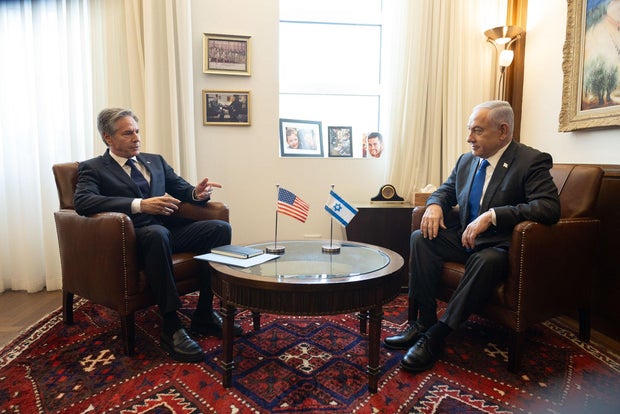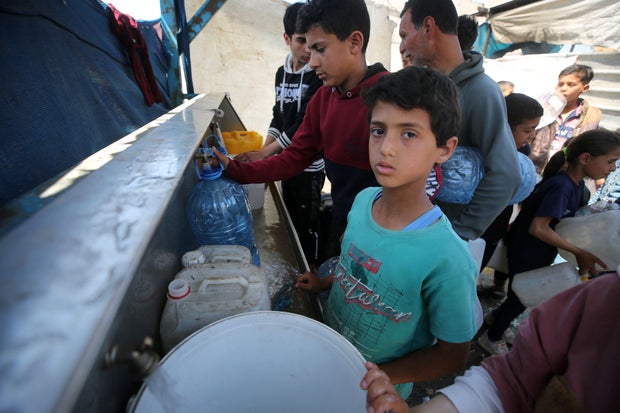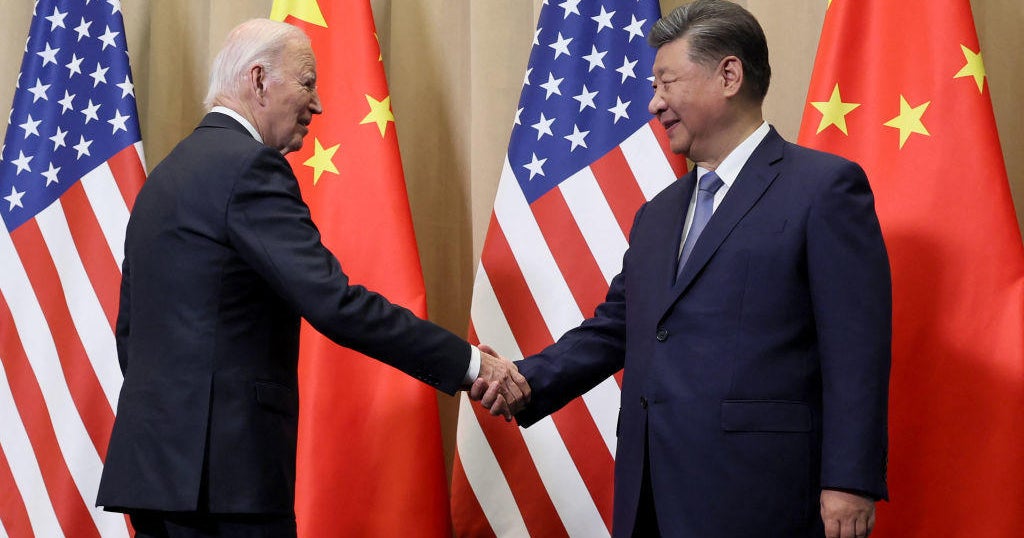CBS News
Israel’s Netanyahu is determined to launch a ground offensive in Rafah. Here’s why, and why it matters.

Israel is determined to launch a ground offensive against Hamas in Rafah, Gaza’s southernmost town, a plan that has raised global alarm because of the potential for harm to more than a million Palestinian civilians sheltering there — in addition to the risk of harming Israeli hostages who could be held captive in the city.
Even as the U.S., Egypt and Qatar push for a cease-fire deal they hope can avert an assault on Rafah, Prime Minister Benjamin Netanyahu repeated Tuesday that the Israel Defense Forces would move in on the city “with or without a deal” to achieve his government’s stated goal of destroying the Hamas militant group in response to its bloody Oct. 7 terrorist attack.
Under pressure, Netanyahu vows to order Rafah incursion
“We will enter Rafah because we have no other choice. We will destroy the Hamas battalions there, we will complete all the objectives of the war, including the return of all our hostages,” Netanyahu said Tuesday, the day before he met visiting U.S. Secretary of State Antony Blinken.
U.S. State Department Handout
Speaking Thursday at a memorial ceremony for IDF soldiers killed in Gaza, Netanyahu acknowledged “differences of opinion within” his cabinet about how to proceed, but he added that a “decision was made,” and “we will do what is necessary to win and overcome our enemy, including in Rafah.”
Netanyahu is under huge, opposing political pressure from hostage families pushing for a cease-fire agreement to bring their loved ones home from Gaza, and far-right members of his fragile coalition government who’ve threatened to drop their support for his leadership if he accepts any truce agreement.
Israel has approved military plans for its offensive and has moved troops and tanks to southern Israel in apparent preparation — though it’s still unknown when or if it will happen.
About 1.4 million Palestinians — more than half of Gaza’s population — are jammed into the town and its surroundings. Most of them fled their homes elsewhere in the territory to escape Israel’s onslaught and now face another wrenching move, or the danger of facing the brunt of a new assault. They live in densely packed tent camps, overflowing U.N. shelters or crowded apartments, and are dependent on international aid for food, with sanitation systems and medical facilities infrastructure crippled.
Why Rafah is so important
Since Israel declared war on Hamas in response to its unprecedented attack, Netanyahu has made it clear that his central goal is to destroy the group’s military capabilities.
Yasser Qudaih/Anadolu via Getty Images
Israel calls Rafah Hamas’ last major stronghold in the Gaza Strip — a densely populated Palestinian territory that Hamas had controlled for almost two decades before this war. Operations across the enclave have dismantled 18 of the militant group’s 24 battalions, according to the IDF. But even in northern Gaza, the first target of the offensive, Hamas has regrouped in some areas and continued to launch attacks.
Israel says Hamas has four battalions in Rafah and that it must send in ground forces to topple them. Some senior militants could also be hiding in the city.
Why there’s so much opposition to Rafah offensive
The U.S. has urged Israel not to carry out the operation without a “credible” plan to evacuate the more than 1 million civilians believed to be taking refuge in Rafah. Egypt, a strategic partner of Israel, that sits just across Gaza’s southern border from Rafah, has said an Israeli military seizure of the border — which is supposed to be demilitarized — or any move to push Palestinians into Egypt would threaten its four-decade-old peace agreement with the Jewish state.
Israel’s previous ground assaults, backed by devastating bombardment since October, have leveled huge parts of northern Gaza and the southern city of Khan Younis and caused widespread civilian deaths, even after evacuation orders were given for those areas. Gaza’s Hamas-run Health Ministry puts the death toll in excess of 34,000 and says most of those killed have been women and children, though it does not distinguish between civilian and combatant deaths.
Israel’s military says it plans to direct civilians in Rafah to “humanitarian islands” in central Gaza before its offensive. It says it has ordered thousands of tents to set up new camps for the displaced. But it hasn’t given details of its plan, and it remains unclear whether it’s logistically possible to move so many people all at once without causing even more suffering for a population already exhausted by multiple displacements and months of bombardment.
The U.N. Secretary-General renewed his warning that a military offensive in Rafah would be “an unbearable escalation, killing thousands more civilians and forcing hundreds of thousands to flee.”
Some entry points from Israel to Gaza in the north have been reopened recently, and the U.S. has promised a new, temporary port to bring in more supplies by sea will be ready in weeks. But the majority of food, medicine and other material enters Gaza from Egypt through Rafah or the nearby Kerem Shalom crossing — traffic that would likely be impossible during an invasion.
The U.S. has urged Israel to opt for more pinpoint operations against Hamas in Rafah, without a major ground assault.
“We don’t want to see a major ground operation in Rafah,” U.S. National Security Council spokesperson John Kirby said after Netanyahu’s latest comments. “Certainly, we don’t want to see operations that haven’t factored in the safety, security of” civilians taking refuge in the city.
Netanyahu’s political calculations
The question of attacking Rafah carries heavy political implications for Netanyahu. His government has been threatened with collapse if he doesn’t go through with it. Some of his ultranationalist and conservative religious governing partners could pull out of the coalition if he signs onto a cease-fire deal that prevents an assault.
Critics of Netanyahu say he’s more concerned with keeping his government intact and staying in power than in Israel’s national interest — an accusation he’s denied repeatedly.
One of his coalition members, Finance Minister Bezalel Smotrich, said Tuesday that accepting a cease-fire deal and not carrying out a Rafah operation would amount to Israel “raising a white flag” and giving victory to Hamas.
On the other hand, Netanyahu risks increasing Israel’s international isolation — and alienating its top ally, the United States — if it does attack Rafah.
His vocal refusals to be swayed by world pressure and his promises to launch the operation could be aimed at placating his political allies, even as he considers a cease-fire deal. Or, he could bet that international anger will remain largely rhetorical if he goes ahead with the attack.
The Biden administration has used progressively tougher language to express concern over Netanyahu’s conduct of the war, but it has also continued to provide weapons to Israel’s military, and vital diplomatic support.
CBS News
Woman gives emotional testimony in Idaho abortion ban case
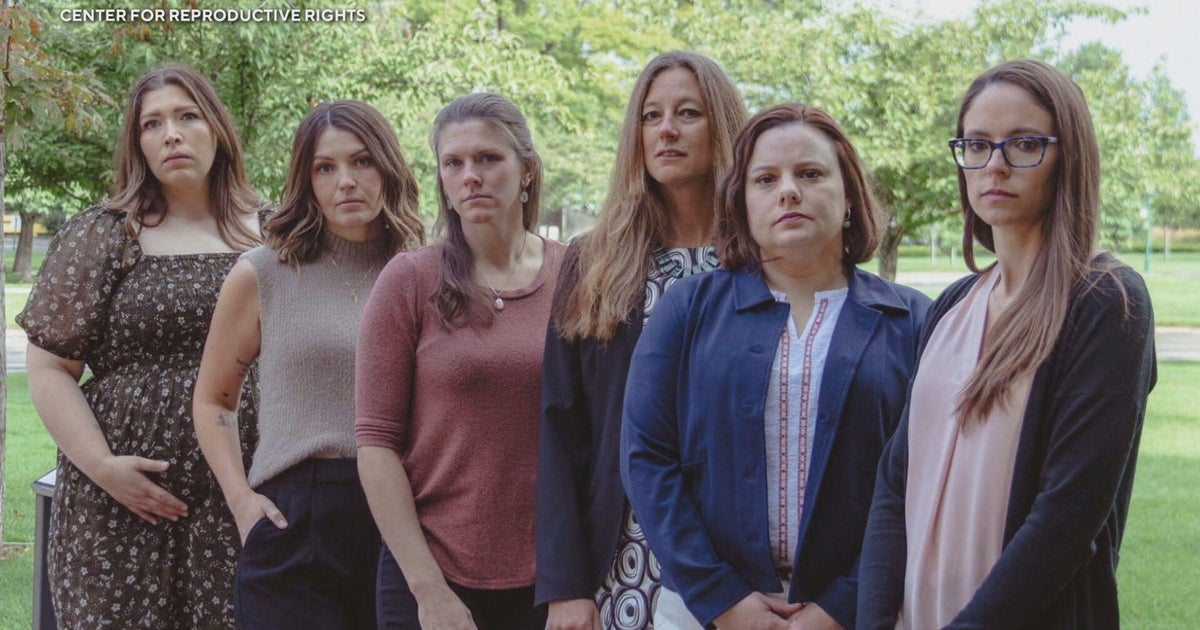
Watch CBS News
Be the first to know
Get browser notifications for breaking news, live events, and exclusive reporting.
CBS News
Palestinians hope Trump will end the war in Gaza

Watch CBS News
Be the first to know
Get browser notifications for breaking news, live events, and exclusive reporting.
CBS News
Bela Karolyi, polarizing U.S. gymnastics coach, dies at 82
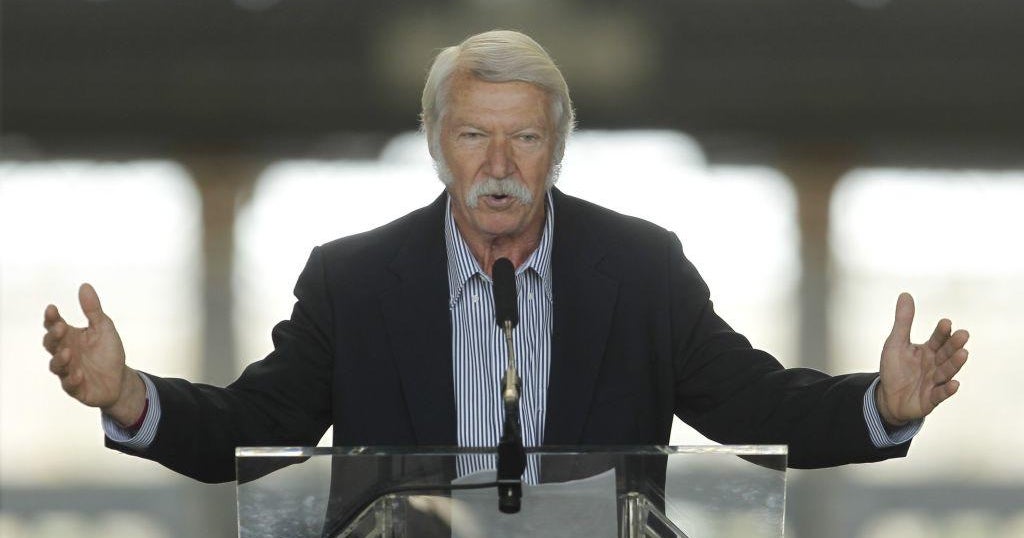
Bela Karolyi, the charismatic if polarizing gymnastics coach who turned young women into champions and the United States into an international power, has died. He was 82.
A spokesperson for USA Gymnastics confirmed to CBS News by email that Karolyi died Friday. No cause of death was given.
Karolyi and wife Martha trained multiple Olympic gold medalists and world champions in the U.S. and Romania, including Nadia Comaneci and Mary Lou Retton.
Ron Jenkins/Fort Worth Star-Telegram/Tribune News Service via Getty Images
“A big impact and influence on my life,” Comaneci, who was just 14 when Karolyi coached her to gold for Romania at the 1976 Montreal Olympics, posted on Instagram.
The Karolyis defected to the United States in 1981 and over the next 30-plus years became a guiding force in American gymnastics, though not without controversy. Bela helped guide Retton — all of 16 — to the Olympic all-around title at the 1984 Games in Los Angeles and memorably helped an injured Kerri Strug off the floor at the 1996 Games in Atlanta after Strug’s vault secured the team gold for the Americans.
Karolyi briefly became the national team coordinator for USA Gymnastics women’s elite program in 1999 and incorporated a semi-centralized system that eventually turned the Americans into the sport’s gold standard. It did not come without a cost. He was pushed out after the 2000 Olympics after several athletes spoke out about his tactics.
It would not be the last time Karolyi was accused of grandstanding and pushing his athletes too far physically and mentally.
During the height of the Larry Nassar scandal in the late 2010s — when the disgraced former USA Gymnastics team doctor was effectively given a life sentence after pleading guilty to sexually assaulting gymnasts and other athletes with his hands under the guise of medical treatment — over a dozen former gymnasts came forward saying the Karolyis were part of a system that created an oppressive culture that allowed Nassar’s behavior to run unchecked for years.
Still, some of Karolyi’s most famous students were always among his staunchest defenders. When Strug got married, she and Karolyi took a photo recreating their famous scene from the 1996 Olympics, when he carried her onto the medals podium after she vaulted on a badly sprained ankle.


